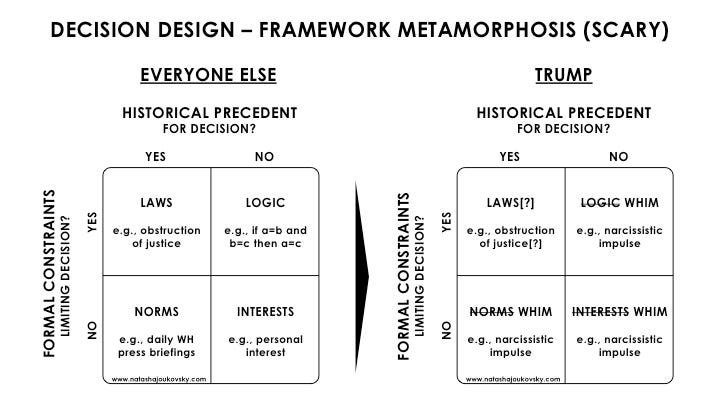Firing Comey and the metamorphosis of decision design

The recent fallout from Trump's decision to fire FBI Director Comey illustrates a fundamental shift to the executive decision-making paradigm away from the established cultural standards of mature, stable, democratic republics.
The above framework depicts the starting point for decision analysis based on historical precedent and formal constraints to the decision-maker's authority. It does not suggest that these starting points always prevail; individual decisions may ultimately violate laws, logic, norms, and personal interest for any number of reasons. The shift I'm trying to illustrate with Trump, rather, is to the baseline, to the going-in assumption. Whims are the foundational element to Trump's decisions, with homage to logic and norms factoring in only when they support said whims. Indeed, Trump's repudiation of norms is one of the stated reasons his supporters elected him (swamp draining &etc.).
This is an innovation made possible, I think, by Trump's personal mythology and near-infallibility with his base. Oh, and it's terrifying. Formal constraints are subject to deep strain when in contradiction to informally-established normative behavioral parameters. Just think of the variations between, say, your corporate handbook and how things actually work day to day in the office. What has a greater impact on behavior? Similarly, logic, like its cousin reality, is often less-believable than fiction. How our formally-codified precedents hold up to direct pressure on norms and logic is, perhaps, the next big question.



